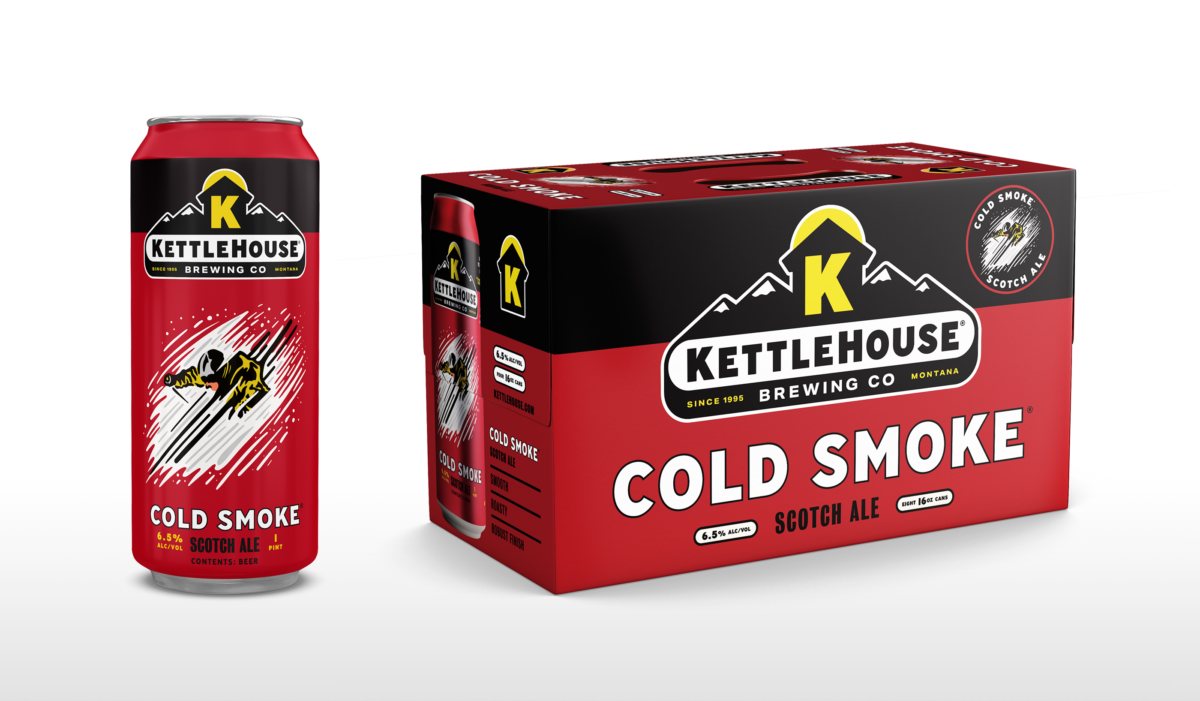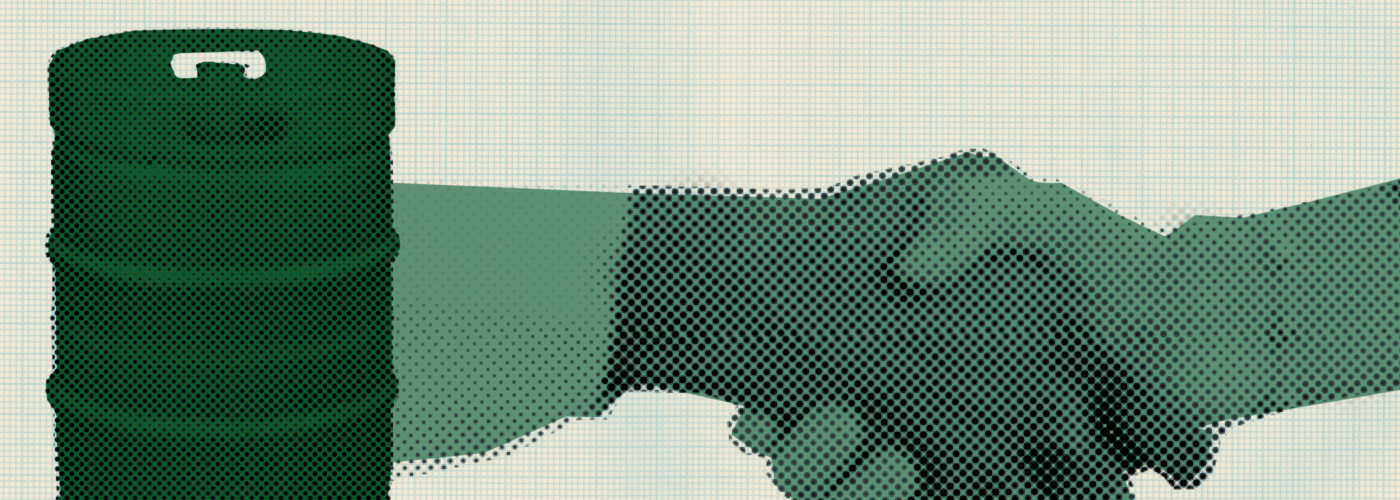Resources
Lessons Learned from 20 years of Selling Beer
A Masterclass in Beer Sales
Beer sales is an interesting field. Depending on who you ask, it can be a complete slog full of windshield time, fighting well-funded competition for a finite amount of cooler space, late nights away from home and endless (endless) hangovers.
Or, beer sales can be a vocation—a rewarding process of intimately understanding the beverage, a brewery’s brand, and your accounts so you can give them exactly what they need, when they need it and make their life easier.
Al Pils (yes, that’s his real name) is a beer man through and through and falls squarely in the beer sales as vocation camp.
We first met Al when rebranding KettleHouse back in 2018 and have worked with him on a variety of follow on projects since. He recently celebrated his twentieth anniversary (!) with KettleHouse, and we were excited that he made time to sit down with us and discuss all the lessons he’s learned along the way.


Hey, Al. Please introduce yourself and give us a run down on KettleHouse Brewing. How (and when) was the brewery founded, what kind of beers do you brew, annual production (bbls), distribution footprint, etc.?
 Al
Al
Hello! My name is Al Pils and I am the Brand Engagement Manager at KettleHouse Brewing Company. We were founded in 1995 by Tim O’Leary and Suzy Rizza, who still own and operate the business. We are primarily an Ale house, but we do mess around with a few lagers. We are trending towards 25k bbls of annual production this year. We are sold all across Montana, North Idaho and Eastern Washington as well as the Jackson and Cody markets of Wyoming. Our Flagship brew, Cold Smoke Scotch Ale is the most popular craft in the state of Montana and is probably the reason I’m writing this response!

What is your title and what does a typical work day look like for you?
 Al
Al
I’m the Brand Engagement Manager at KettleHouse. That’s a fairly broad title, so everyday can be a little bit different. There’s a mix of sales, distributor overview, marketing and customer service involved with this role, it tends to keep me on my toes. Today I worked with our Sales Manager and our Marketing Manager on an annual business plan to present to one of our distributors and called on a few accounts.

KettleHouse’s updated Cold Smoke packaging.

You’ve been at this for a long time. How has the profession of beer sales evolved since you first started working?
 Al
Al
I feel like it was more old school high pressure sales years ago, then has trended towards a more analytical approach. It’s still a relationship game, but you need to be able to read the room a bit to be successful. It’s also much more competitive these days. So many brands, so many reps. As the category has grown, so has the amount of money that’s at stake. Folks are probably more knowledgeable these days—I had no idea what a Cicerone was 20 years ago. Have you heard the joke about how do you know when you’re having a beer with a Cicerone? Don’t worry, they’ll tell you…

What is the split between your work and a distributors? Seems like there would be a fair bit of overlap, especially in your home base of Missoula.
 Al
Al
Tons of overlap. The distributors have the luxury of seeing the buyers more frequently than most reps do, so they can have a profound impact on your business’s trajectory. To be fair, they also have way more products to try and advocate for, but the point I’m trying to make here is that your distributor partner is someone who you need to communicate well with. You set ‘em up and they knock ‘em down.
The most important sale you’ll make is getting the distributor’s buy-in on a product. If they don’t believe in what you’re selling, why would the customer?

I’ve always had the sense that beer sales start upstream with broader brand building and a brewery’s reputation. So if you are well known, selling beer is much easier. Would you agree with this or am I being too black and white?
 Al
Al
For sure, the less you have to sell or explain the better off you are. But you also mention something that is very important, and that is all the work you have to do before you walk in the door of a possible sale. All the branding etc that is done to make your product seem legit in the first place can be a pretty heavy lift. Another key point here is that you only get one chance to make a first impression, so you’d better stick that landing.


Build a stronger brand.
Sell more beer.
Join 7,500+ other beer industry folks and sign up for our monthly Beer Branding Trends Newsletter.

Beer Branding Trends 2.0

What are some of the key differences between selling beer to on-premise vs off-premise accounts?
 Al
Al
On-premise is more emotion, and off is more logical. If it doesn’t make dollars, it doesn’t make sense in the off-prem world. Whereas buyers in the on are way more likely to make a decision based on a relationship, or a trend or their own personal tastes. And we all know that there’s no accounting for taste. The on-premise also requires more day to day work (largely for less money) than the off. Those grocery store folks have 100,000 different items in their store to worry about. They set it and forget it until the next reset. Hopefully your SKU has generated enough sales to make it justifiable to stick around at the next reset.

A lot of people work in beer. And a lot of people work in sales. But that doesn’t mean selling beer is necessarily easy. What make a brewery sales rep great at their job?
 Al
Al
That’s an interesting one to unpack because typically a sales person is judged by just that, sales. That’s an easy “digital” response, but I believe that there is a bit more nuance involved with being great. When things are going well, it’s easy to succeed, but the real great reps are the ones who can make it happen when things get tough. For example, my toughest days as a rep were when the brewery faced a production cap. We had to pull out of half of our markets because we couldn’t make enough beer. We had to navigate a path forward knowing that we wanted to eventually sell to those customers again, but couldn’t for the foreseeable future. It was hard to maintain some of those relationships in the meantime while we couldn’t supply them with product. So the answer might be the ability to keep going when things inevitably get difficult. Perseverance and professionalism.

Now let’s flip that—what are some actions or traits that would make for a shitty brewery rep?
 Al
Al
Probably the same things that make people shitty in general. I see reps who would rather hang out and party then do the less sexy things that actually sell beer. Not following through with promises is another bad trait that i see a lot. And last but not least, shit talking is a bad one, especially up here in Montana where everyone knows everyone. I will say that most reps that i run into are pretty good at their jobs, the ones who suck typically get cycled through pretty quickly.

Let’s talk about beer distribution footprint and sales philosophy for a moment. KettleHouse has been distributed in Montana only for 20+ years. But you’ve been big enough that it would have been tempting to chase volume in other more far flung markets. Why stay and work hard to own Montana for so long?
 Al
Al
We love the philosophy of being a mile deep, not a mile wide. We also, as mentioned above, had some production issues that prevented us from going across state lines earlier in our trajectory. I also think that scarcity is the ultimate commodity, people want what they can’t have. That memetic desire has stoked the flames in adjacent states and helped fuel the flames of desire that drive sales.

On that note, KettleHouse recently launched Spokane, Washington. And that market makes a lot of sense for KettleHouse (close in proximity, great beer market, similar outdoorsy demographic as found throughout Montana). Given that you’ve focused solely on Montana for so long, were you guys concerned about what your fans would think when you jumped state lines?
 Al
Al
I was a bit, but I’m also a bit of a worrier. I haven’t heard anyone really complain about that move, other than some of my Montana competition who didn’t want to sell against us in out of state markets as well. Spokane wanted us pretty badly for a long time, like you said, it made sense. I don’t ever want to be in the position of HAVING to go to another market just to make numbers.

How has that launch been so far?
 Al
Al
It’s been great. Working with our distributors in Washington has been super helpful for me because they are a pretty huge house and they’ve helped us up our game in other markets by making us become more professional and learn new tricks. Yay! It’s also been rad because it gives me the confidence that our beer resonates with folks outside of Montana.

It seems like an established concern like KettleHouse would have an easier time launching a new market (just because you have an established reputation and brand) than a newer brewery. What advice would you have for a newer brewery, say someone less than five years in business, that wants to expand to a new market.
 Al
Al
Don’t force it. Concentrate on being the best you can be to create a call for your brand. Develop deep roots in your home market and the rest will come to you. In this day and age, distributors aren’t in the brand acquisition phase as much anymore, so it’s tougher to expand.

What tools do you use to do your job? (E.g. sale sheets, merch & giveaways, CRM)
 Al
Al
Whatever tools that I have access to. VIP/Karma is probably the tool I rely on the most—it’s an awesome thing to have all that information at your finger tips. I’m not a big swag giveaway guy, that can be a short-sided and unsustainable way to do business.

How important are personal relationships in beer sales? E.g. I know and trust Al, so I’ll take whatever he’s bringing in this month.
 Al
Al
I believe that they are everything. Especially in a small population state like Montana, where it’s like one big small town and word travels.

How has the pandemic affected beer sales? Not beer sales in terms of metrics, but rather the profession of selling beer?
 Al
Al
We all had to learn some new tricks, that’s for sure. Different ways of communicating with customers and buyers due to social distancing, in-person events dried up. Beer is such a social thing, that can make selling it a challenge when you are sitting in your basement watching the news about how the world is going to end. Things are slowly getting more normal, but I am curious to see what the trade is like in a few years. Will people want to get together in big groups again and drink beer? My guess (hope) is that they will…
The most important sale you’ll make is getting the distributor’s buy-in on a product. If they don’t believe in what you’re selling, why would the customer?

I imagine being with one brewery for 20 years puts you in rarefied air in this industry. What has it been like to grow up with KettleHouse?
 Al
Al
Fucking awesome. But to be clear, nobody grows up thinking, I wanna be a salesman when I grow up. And I wouldn’t want to sell anything that I don’t completely believe in, so I’m also lucky! It’s been a dream to never have to get a “real” job. Ha!

Do you have any book / podcast / newsletter recommendations that beer industry folks should check out?
 Al
Al
I liked Ken Grossman’s book. It wasn’t War and Peace, but it makes some good points that are applicable to the industry as a whole.

What is one piece of advice you have for someone getting into beer sales today?
 Al
Al
Listen to your customers, the rest will fall into place.

Build a stronger brand.
Sell more beer.
Join 7,500+ other beer industry folks and sign up for our monthly Beer Branding Trends Newsletter.

